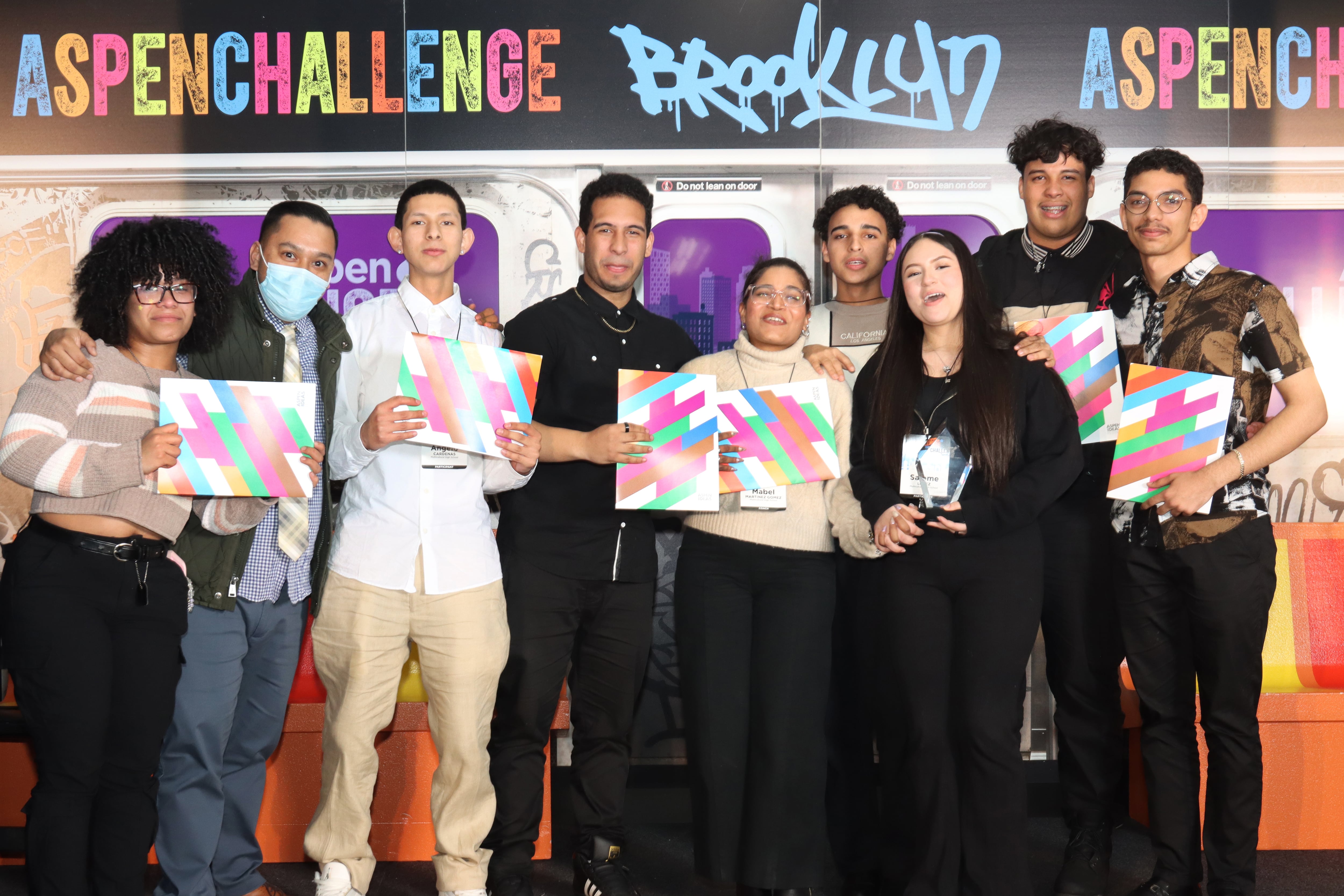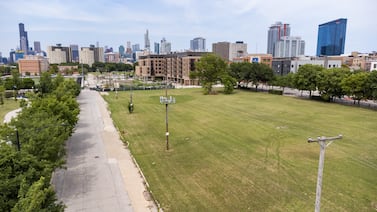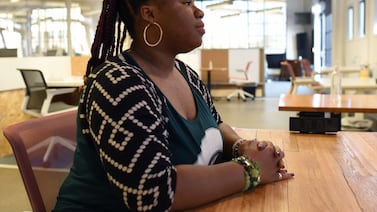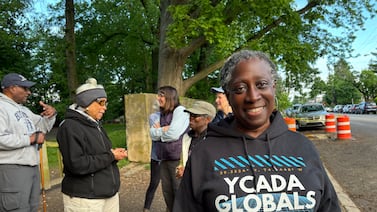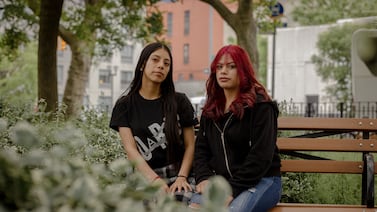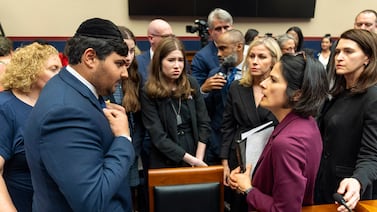Kimberly Gil knows what it’s like to struggle with mental health and not have a place to turn for support.
Gil, a 16-year-old sophomore at the High School for Social Justice in Bushwick, Brooklyn, immigrated to the U.S. as a kid and struggled to acclimate. She often felt like she couldn’t talk to her family about what she was going through. It’s a familiar story among her classmates, Gil said.
“Many of our students have lost a loved one. They’ve gone through sexual harassment, sexual assault, depression, self-harm,” said Gil. But when it comes to bringing up those topics with their families, many teens are concerned “they won’t believe me, or they won’t be there for me.”
That sense of isolation is what drove Gil and seven classmates to come up with a new approach to supporting student mental health: creating a space in school where kids can share what they’re going through with fellow teenagers.
Gil is a member of the school’s team for the second annual Aspen Challenge – a youth version of the famous Aspen Ideas Festival in Colorado where teams of public school teenagers choose a pressing social challenge and come up with an innovative solution. Her team was among 20 high schools last month presenting their ideas on various issues from mental health, to rats, to immigration.
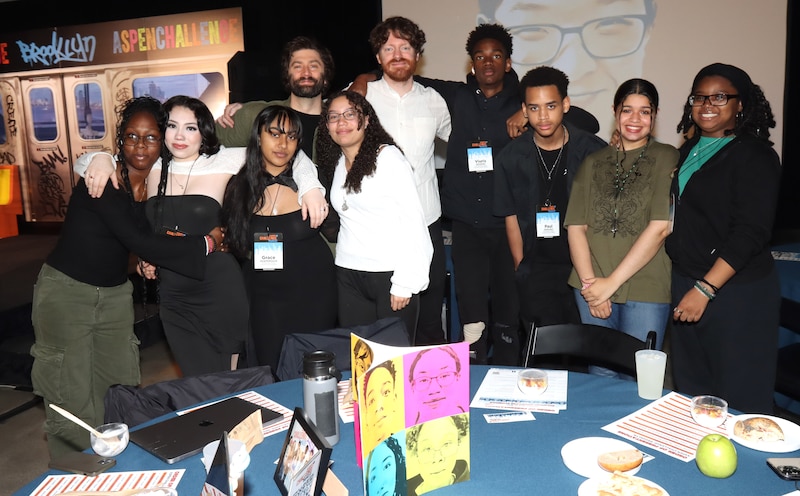
Gil’s team opted to tackle the ongoing youth mental health crisis at their school by transforming an empty classroom in their school into a wellness space staffed by teen volunteers who have undergone training as peer counselors, with adult supervision.
“This is a way where they can come and express how they truly feel without feeling ashamed,” said Gil.
In the first few days since the space opened up last month, they’ve already seen a steady stream of students coming to vent about grades and stress at the end of the marking period, said sophomore Grace Sewpersaud, 16.
Rats, immigration, and discrimination
Students in this year’s contest chose between five potential challenges: mental health, immigration, discrimination and bias, the environment, and rats.
The top honor, which included a trip to this summer’s Aspen Festival, went to students at Multicultural High School, a school in Cypress Hills geared toward recent immigrants. The team developed a website and workshops to connect newly arrived immigrant students with resources like legal help, support applying for financial aid, and access to free day care.
A team from Brooklyn Technical High School, called the Brooklyn Eraticators, took home an honorable mention for their multi-pronged plan to get the city’s largest high school to help bring down the rat population in Fort Greene.
The plan involved an education campaign to get students to discard their food waste in compost bins, which are taken out more frequently than other trash and are less likely to attract rats, student organizers said.
Teens at Sunset Park High School, meanwhile, drew on their own experiences watching immigrant family members face discrimination to devise a series of know-your-rights workshops for undocumented kids and adults.
Lizbeth Acevedo, a 16-year-old sophomore, said she’s seen her immigrant parents face discrimination since she was young. “So I guess this was a way for us … to cause the discrimination to stop.”
Teens talk parents and mental health
The topic that drew the most attention from the teen problem-solvers was the ongoing youth mental health crisis – a problem that has spurred city officials to launch their own novel approach: a free, online therapy program for kids 13-17.
Teams tackling mental health at this year’s Aspen challenge talked about pervasive anxiety, depression, and stress among their peers – and a lack of understanding or even direct opposition from their parents about accessing treatment.
The team at Brooklyn High School for Law and Technology focused one prong of their plan on educating parents about teens and mental health. The group proposed bringing parents into workshops to help ease some of the stigma, misunderstandings, and fears that adults may bring to conversations about the mental health of their kids.
“When I spoke to my family about when I wanted to have therapy and I felt like I needed help, they felt like I was telling them that I was crazy, and that I needed medications to calm me down, and that they were going to throw me in a psych ward,” said Ariana Garcia, a 17-year-old senior.
Parents are often still carrying their own burdens and traumas that may influence how they perceive their kids’ mental health, added Haajra Ali, a 16-year-old 11th grader. “It just depends on how we can help them so they can break the cycle,” she said.
Gil, the student at Bushwick’s High School for Social Justice, said she was not too hung up on the results of the contest.
“To be honest, we don’t really care about Aspen,” she said. “We’re more into actually doing something with the school. For us, it’s a really big thing that we’re able to put this up for people.”
Michael Elsen-Rooney is a reporter for Chalkbeat New York, covering NYC public schools. Contact Michael at melsen-rooney@chalkbeat.org.
